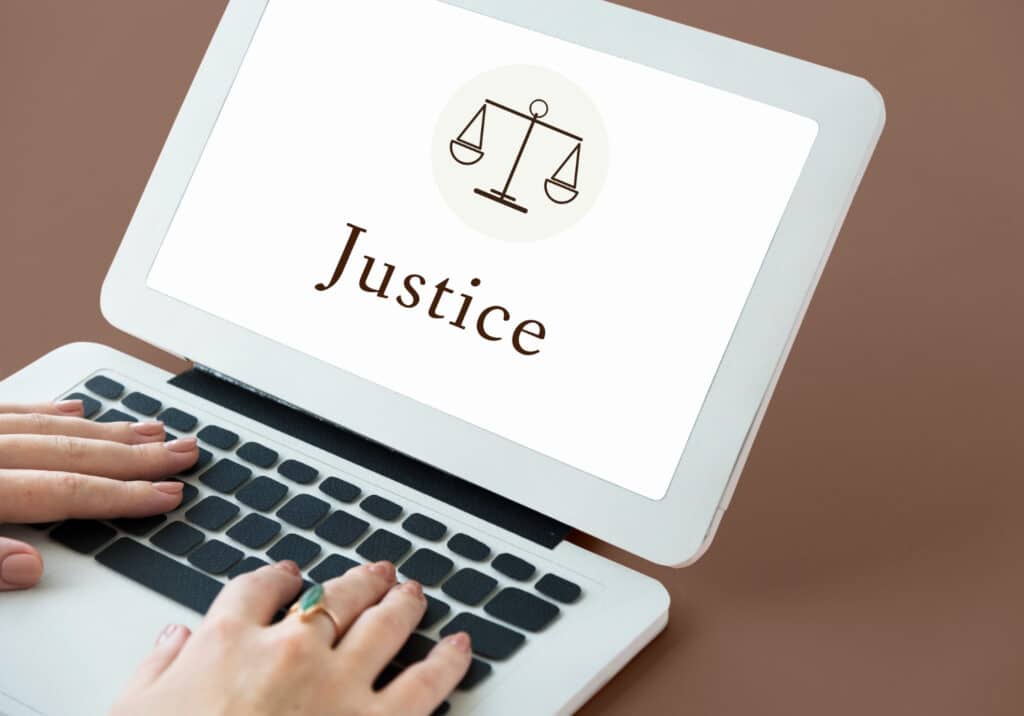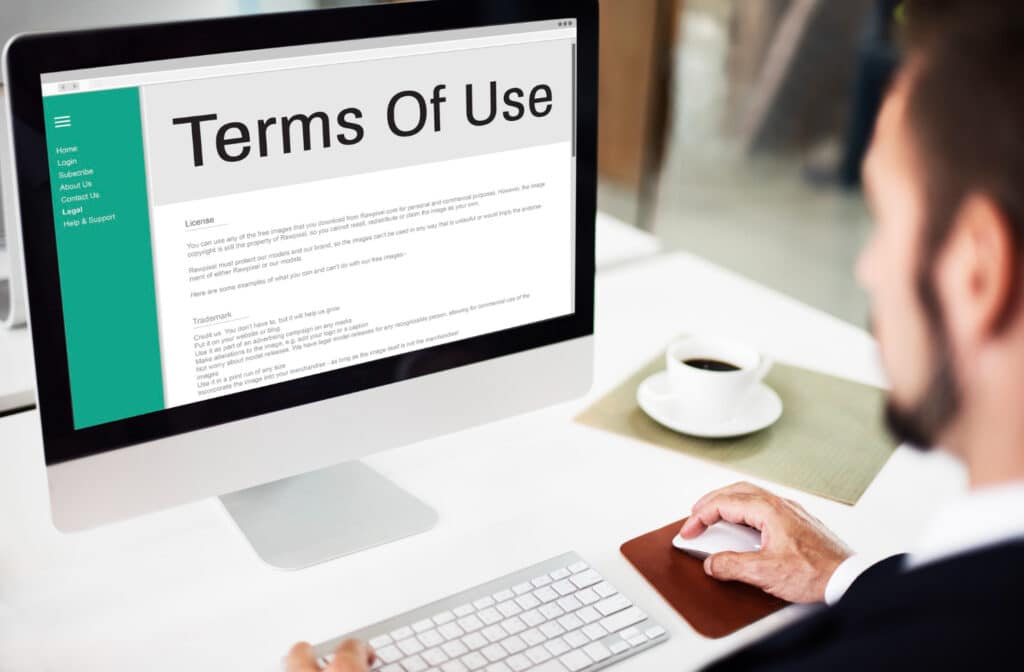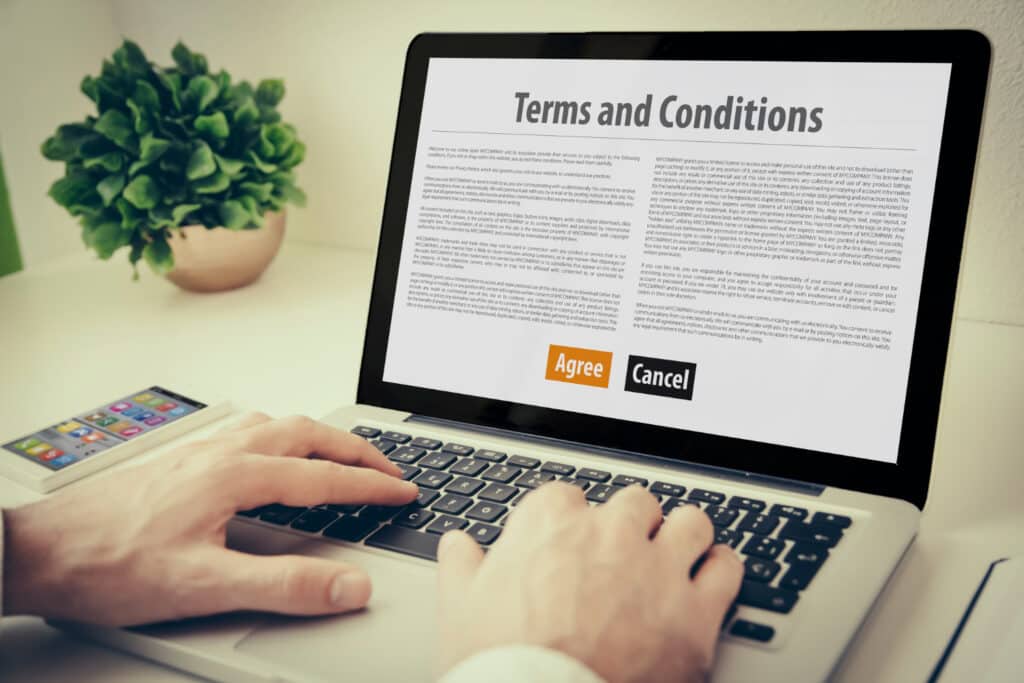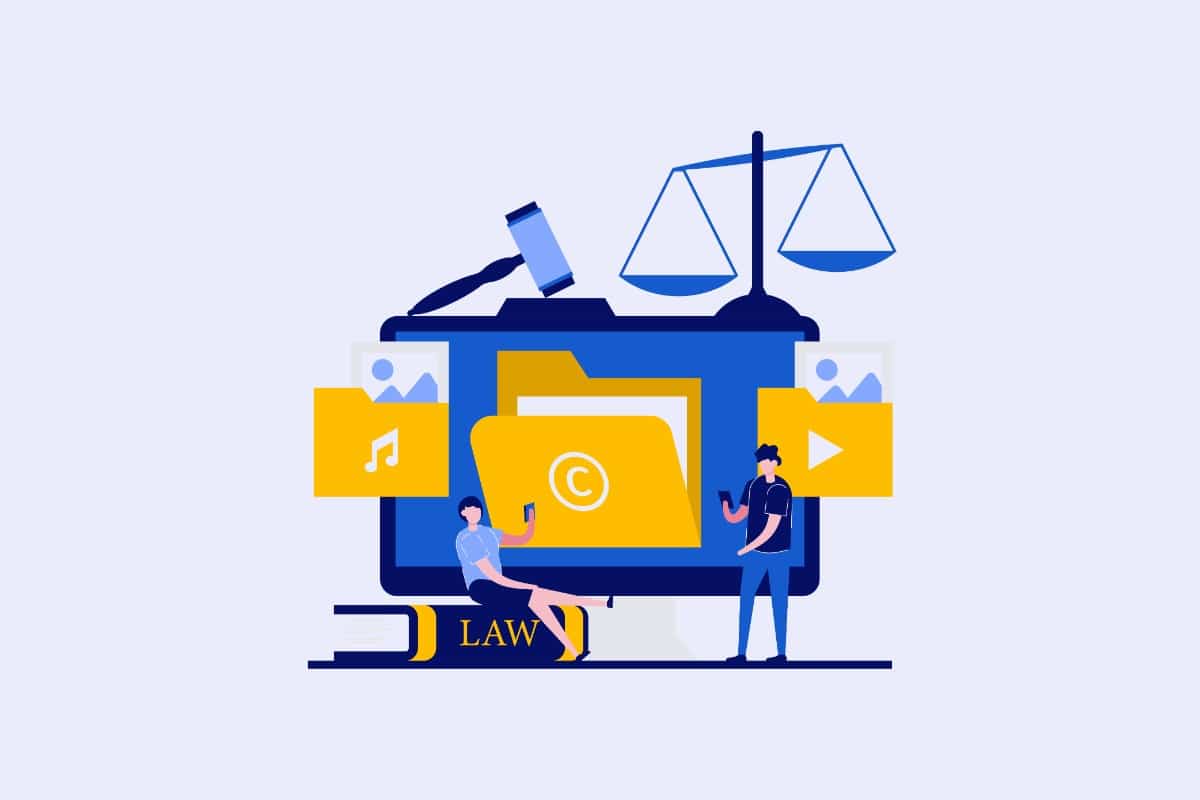When consulting online platforms, you have probably already noticed the legal notices placed by the site owners. This is a mandatory section that most Internet users don't bother to consult because it is considered uninteresting. However, it is an element that gathers a multitude of data related to the identification of the person who owns the site. What do WordPress legal notices really mean? Why do you need to integrate them into your website? What information must be included? What are the risks of not integrating WordPress legal notices?
What is a WordPress legal notice?

The legal mentions of a WordPress website are a set of crucial information that every website must include to be in conformity with the digital law. They allow you to identify the site's editor and to obtain information in order to contact him if necessary.
As far as professional websites are concerned, the Law of confidence in the digital economy or LCEN, of June 2004, sets the list of this legal information. They must mention the contact details of the site's publisher, the identification number in the Trade and Companies Register (RCS), the intra-community Value Added Tax number, the share capital, the name of the publication director and the person responsible for editing, information on the host and the declaration number to the CNIL.
Why integrate legal notices into your WordPress site?
When you design a WordPress site, you must implement all the necessary means for its proper functioning. Among the essentials, there is the legal notice. Here are a few reasons why you should definitely include them in your platform.

To comply with the law
Once you have finished designing your WordPress site, you need to think about the legal notices. This is a key element that will allow you to comply with the law in terms of publishing content on a platform. In many countries, there is a plethora of legal requirements in terms of the information that must be transmitted on the internet. By placing the essential legal information on your pages, you will meet the requirements and avoid legal problems.
Note that in France, the law for confidence in the digital economy requires website owners to include mandatory information such as the identity of the publisher, the terms of use of the site and information inherent to the protection of personal data... In addition, under the General Data Protection Regulation or RGPD, platforms must be transparent about how they collect, store and use personal data collected from Internet users.
By adding legal notices to your WordPress site, you will be complying with these various important laws and rules. The advantage here is that you will escape financial penalties and legal troubles.
To protect users
For the protection of users, you must necessarily present the legal notice on your website. Sometimes, users have no idea of the importance of the data they send about themselves. This is why it is so important to provide clear and transparent information about your identity, terms of use and personal data protection. With the help of the legal notice, you will enable your visitors to make informed decisions about the use of the site.
When visitors have questions or problems, they often seek to contact the publisher of the platform concerned. The legal notice serves precisely to provide information about the owners of the site. This can help build trust in your company, which will benefit your annual turnover.
In addition, by informing Internet users about the collection and use of their data, the legal notices contribute to the protection of their privacy. They can find out exactly what information is collected, why it is collected and for what purpose it is used. In short, legal notices are perfect for creating a climate of trust between a site or a company and its users. If you're looking for ways to improve the user experience and foster user loyalty, don't hesitate to opt for the integration of legal notices.
To prevent disputes
Did you know that it is possible toavoid disputes with users by inserting legal notices on a website. Indeed, by providing clear information on the terms of use of your platform, you inform the Internet user on the rules and limits of the use of your platform. Thanks to this set of information, you would prevent misunderstandings and conflicts with users that may arise due to a misunderstanding of the site's principles.
Secondly, by placing information on the intellectual property of your platform, such as copyrights, trademarks or patents, you dissuade many people from violating the rights. If, despite your provisions, disputes should arise, the legal notices represent a proof of good faith on your part. You should therefore always remember to include it on your WordPress platform.
To protect intellectual property
One of the best reasons you need to talk about legal notices on your website is that they are crucial to protecting intellectual property. They provide information on how to report any intellectual property infringement or unapproved use of site content.
In the legal notices of many sites, you will find information such as restrictions on the reproduction or redistribution of content. With this solution, you will have the necessary weapons to prevent unauthorized copying of your platform's content and to protect the publisher's intellectual property. When designing your website, do not forget to add the legal notices. However, it is important to distinguish them from the GTC and the TOU.
What is the difference between the website legal notice, the GTC and the GTU?
Some people mistakenly confuse the general terms and conditions of sale (GTC), the legal notices and the general terms and conditions of use (GTU) of websites. What is the difference between this essential information?
The legal mentions
The legal notices concern e-commerce and simple websites such as blogs. On this type of platform, they are used to identify without ambiguity the publisher of the site, the conditions of use of the data obtained in compliance with the general regulation on data protection...
The general conditions of sale
As for the general terms and conditions of sale, they must imperatively be written by the professionals who sell products or services. They define the rules surrounding the transactions that will take place between the professional seller and the buyer. For information, the general conditions of sale are more complete than the legal notices. In most cases, they provide information on the product sold, the pricing method, delivery solutions, etc. Note that the writing of the general conditions of sale is important for e-boutiques, but also for physical stores.
The general conditions of use

Finally, the general conditions of use allow Internet users to understand the different uses under which they agree to navigate on your website. In this information, we find the obligation not to create a false customer account to fool the editor or the obligation not to hold abusive, racist or homophobic comments.
What are the risks of not including legal notices?
Legal notices are not optional. If you don't include them on your WordPress site, you risk a lot. Here are some possible repercussions.
Risks of non-compliance with the law and litigation
In many countries, in the European Union and especially in France, the legal mentions are essential when you own a website. If your platform does not respect this requirement, you risk being held responsible and suffering more or less serious sanctions or fines.
Furthermore, without legal notices, you are vulnerable to disputes with regulatory authorities and Internet users. The latter may have different expectations regarding the use of the site, the collection and use of personal data and intellectual property. If you do not disclose this legal information, you may be exposing yourself to unpleasant situations. Finally, regulatory authorities may also investigate your platform and require information about its operation.
The risks of liability and loss of user confidence
In the absence of legal mentions, you can be held responsible when there is an infringement of the privacy or intellectual property of a user of your website. If he suffers any prejudice because of his navigation on your platform, he is free to take legal action that will put you in trouble.
If legal information does not appear on your website, your credibility and the trust of users may be impacted. Well-informed Internet users may consider the absence of legal information as a lack of professionalism or transparency. In this case, you will lose traffic and your natural referencing will be affected.
The sanctions

If your WordPress site does not comply with the obligations related to the writing and publication of legal notices, you risk suffering very severe penalties. These penalties are very dissuasive and will motivate you to integrate this information into your platform. If you forget to include these mandatory elements, you risk a one-year prison sentence and a fine of 75,000 euros. This penalty is applied to natural persons, i.e.: micro-entrepreneurs, individual entrepreneurs... On the other hand, if you use the site as a legal entity (SA, SASU or SARL), you will have to pay an exorbitant sum of 375 000 euros.
What are the essential legal mentions for your website?
The legal mentions vary according to the type of website you have. Discover the essential information to provide in each case.

Legal notices for a personal website
If you have a personal blog, there are few legal notices to display on your site. If you don't want to disclose your identity, this solution is perfect, because your information can be integrated, while preserving your anonymity. On the other hand, you must provide your information to your host as the platform's editor. This is mainly the data you entered when you created your account.
Note that this data is only communicated when there is a problem related to justice. With your blog, all you will have to do is to mention the information of your host, namely :
- the name or corporate name
- postal address
- the telephone number
Finally, your blog must respect the rules regarding the treatment of personal data and the use of cookies.
Legal information for a sole proprietorship
With your sole proprietorship or your micro-business, you will be considered as a natural person. In this case, you must provide some mandatory information such as: your name, your first name, your postal address, your e-mail address, your telephone number, the identity of the host (name or company name, postal address, telephone number), the identity of the director or co-director of publication and the identity of the person in charge of editing if you are specialized in the production of editorial content.
Depending on your situation, there are other elements to be included in the legal information. These include a registration number in the Trade and Companies Register or in the Trade Register, an individual tax identification number. If you are a micro-company, do not forget to include your intra-community VAT number.
If you have an activity subject to prior authorization (pharmacy, liquor store, site selling tobacco or cosmetic products, etc.), you must mention the name and address of the authority that gave you its approval. On the other hand, if you have a site on which you promote a regulated activity, you only need to mention the applicable rules and the professional title. Include the general terms and conditions of sale to manage the business relationship with your customers. Mention the information inherent to data processing and use of cookies.
Legal information for a company
Companies are considered as legal entities. Among the legal mentions for this case of figure, we can quote: the corporate name, the legal form, the amount of the capital, the address of the registered office, the e-mail address, the telephone number, the name of the director or the co-director of the publication, the name of the person in charge of the drafting, the identity of the host, the number of registration to the RCS, the number of intra-community VAT, the individual number of tax identification...
Do not forget to mention the applicable rules and the professional title when your site allows you to promote your regulated activity. Give information on the identity and address of the authority that issued your license if you are engaged in an activity subject to authorization.
Who should write the legal notices for your website?
The legal notices on your WordPress site will save you a lot of trouble and help you build user trust. Who will write this crucial information? There are several possibilities.

Writing on your own
If you wish, you can write your legal notices by your own means. To do so, there are two possibilities. First, you can consult a platform that offers similar services to yours and copy and paste. Secondly, you can look for examples offered on online platforms that will save you time.
The use of a lawyer
If you have any doubts about your compliance with the law, you should contact a lawyer. Note that this solution is particularly suitable for platforms that receive a lot of traffic or that have a commercial activity. With the assistance of a professional, you will be reassured and you will obtain a quality site.
Automatic text generators
By searching a little on the internet, you will discover automatic creation tools. All you have to do is fill in some information and the generator will do the rest of the work. Once you have retrieved the text, take the time to read it to make sure that the information matches perfectly.
How to integrate WordPress legal notices on your site?
Once you have mastered the elements to be included in the WordPress legal notice, you need to integrate them into your site. One of the easiest ways to do this is to create a new page. In your editor menu, go to Pages > Add New Page. Name the page "Legal" and add the legal content. Then insert a link to the page in the footer. To do this, go to Appearance > Widgets, then add a "Text" widget in the "Footer" area. Once this is done, insert the link to the "Legal" page.
Don't forget to add a button to accept the legal notice. There are specific plugins you can use for this purpose.
WordPress Legal Notice: Summary
All in all, legal notices are important for the compliance of your WordPress site. Remember to customize them according to your business and integrate them into your platform to avoid penalties.




